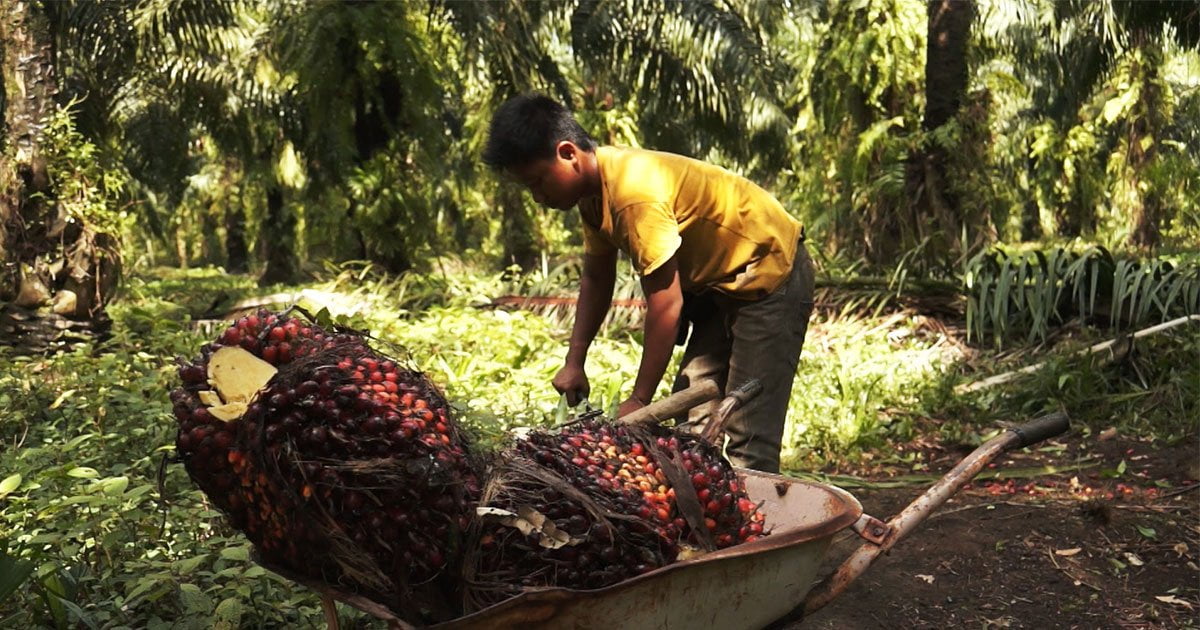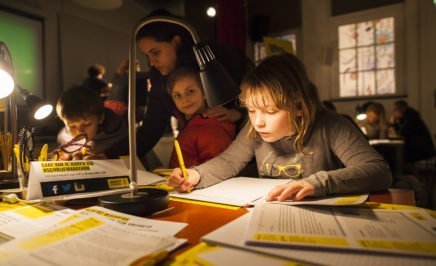14-year-old Johan* works from 8am till 4pm, six days a week, collecting fruit at a palm oil plantation in Indonesia. “My palms hurt and my arms are tired and sore,” said Johan. “The foreman asks me every day whether my block was completed or not. They have never asked why I am not in school.”
Johan is just one of the young plantation workers Amnesty researchers interviewed for the report The Great Palm Oil scandal – some workers are as young as nine. The report found that labour exploitation, including child labour, was rife on palm oil plantations in Indonesia. These plantations provide palm oil to Wilmar, the world’s largest processor and merchandiser of edible oil in the world – oil you’ll find in everyday products from your toothpaste to a KitKat (watch the video below to find out the hidden truth in your shopping trolley).
Johan studied till grade six but was forced to leave to help his father work after be became ill. “He has helped me for the last two years”, said his father Akmal*. “He doesn’t go to school because I often feel unwell and can’t meet my target. My son collects fruits and when I am tired, he harvests and transports fruits to the collection point.”
https://www.youtube.com/watch?v=1WooDTYT0v0
Akmal has two other children, aged 10 and 12 who also help out at the plantation after school, as does his wife.
“I regret leaving school,” Johan told Amnesty. “I would have liked to gone to school to become smarter. I would like to become a teacher.”
“I carry the sack with the loose fruit by myself but can only carry it half full. It is difficult to carry it, it is heavy”
Companies turning a blind eye to child labour
“Companies are turning a blind eye to exploitation of workers in their supply chain,” said Meghna Abraham, Senior Investigator at Amnesty International.
“Despite promising customers that there will be no exploitation in their palm oil supply chains, big brands continue to profit from appalling abuses. These findings will shock any consumer who thinks they are making ethical choices in the supermarket when they buy products that claim to use sustainable palm oil.”
Johan is just one of the children Amnesty spoke to who is forced into labour to keep his family from poverty.

Felix*, who’s 10, dropped out of school after the second grade to help his father at a Wilmar supplier. “I help my father from 6am-12pm every day from Monday to Saturday,” said Felix. “I don’t go to school…I only pick up the loose fruit.
“I carry the sack with the loose fruit by myself but can only carry it half full. It is difficult to carry it, it is heavy. I do it in the rain as well but it is difficult. The hardest thing is to gather the loose fruit because they are heavy. My hands hurt and my body aches. I see other children helping their parents.”
His father, Michael* said he gets a bonus from the loose fruit that his children collect. “That’s why my kids help me. I wouldn’t be able to meet the target… otherwise…”
These abuses must stop now. Amnesty International is calling on the Indonesian government to improve enforcement of the country’s labour laws and to investigate the abuses set out in the report. Find out more in the full report.
*Names have been omitted to protect subjects’ identity as they fear they may lose their jobs








